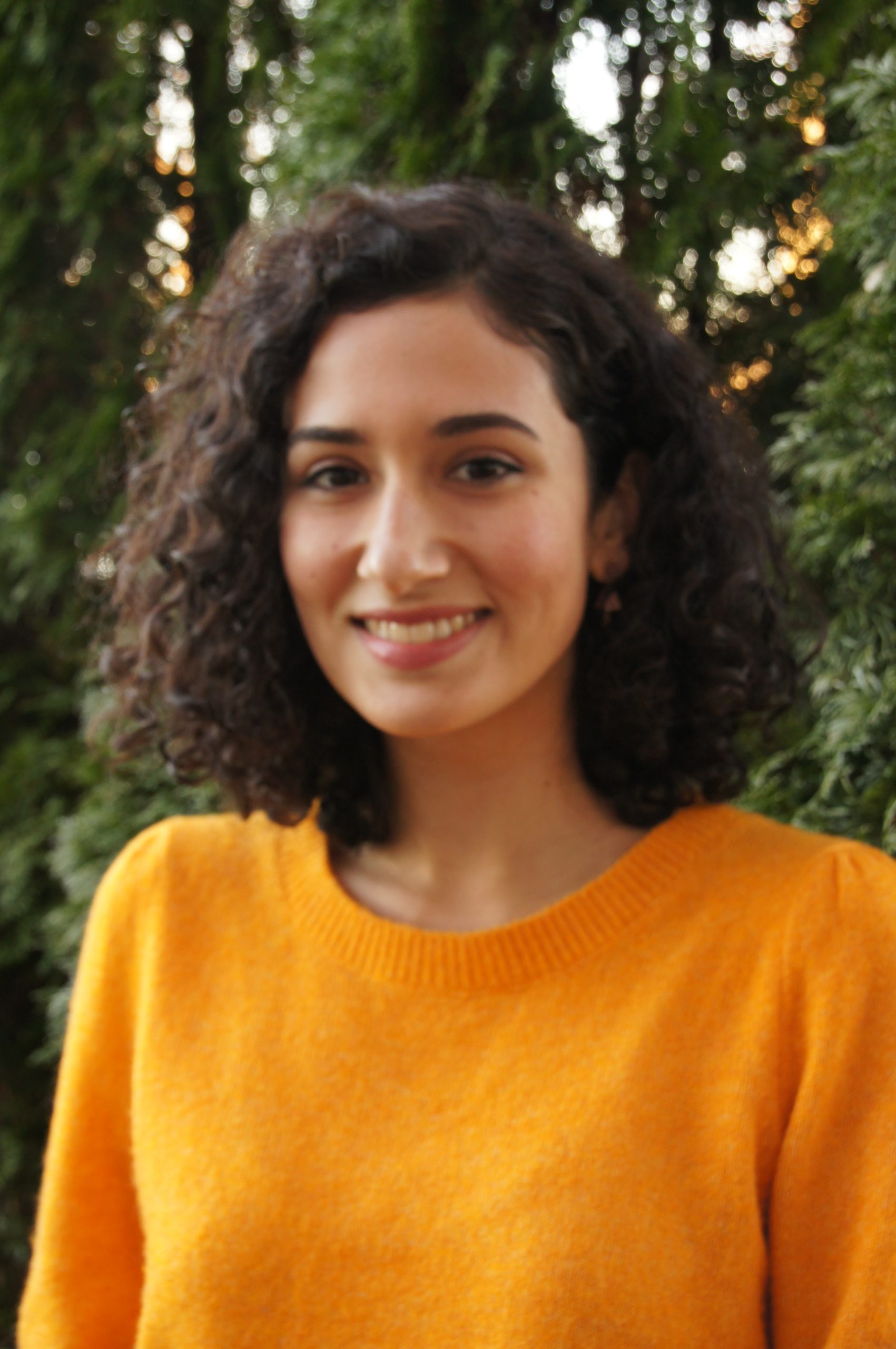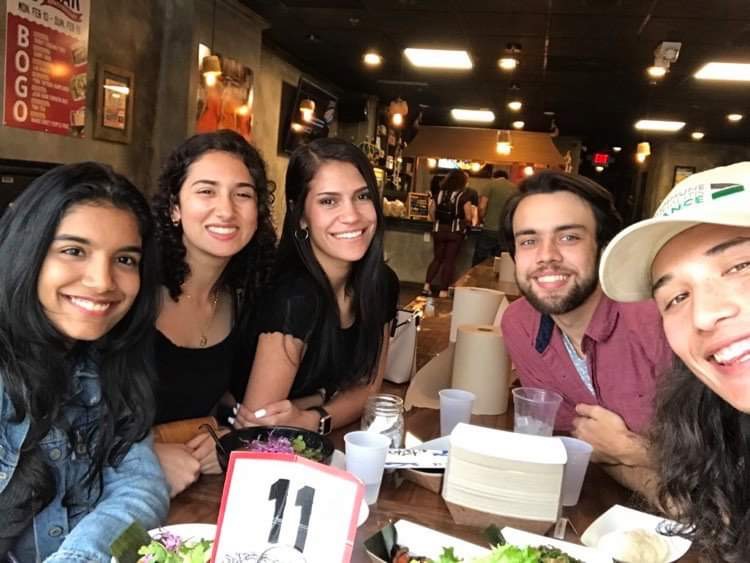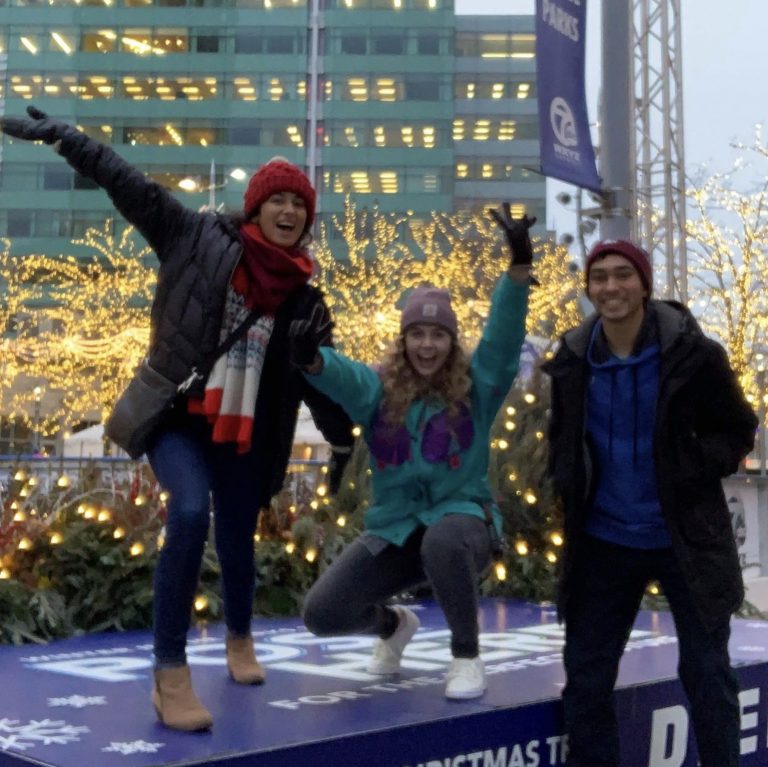Sophia Griemert, a biomedical science major and BHC Scholar, has recently been selected for the Najmaldin Karim Fellowship for Kurdish Studies for her Honors Undergraduate Thesis on Yezidi shamanic practices! She is an active student leader, serving as Director of Advocacy for Period UCF—an organization that advocates for reproductive justice and by supplies menstrual hygiene products—and volunteers at Knights Pantry. Sophia plans to become a practicing physician, specially an OB-GYN, and aims to help underrepresented women receive the quality care.
I understand you’ve been selected for the Najmaldin Karim Fellowship for Kurdish Studies. Can you describe more about what that fellowship entails?
The Dr. Najmaldin Karim Fellowship is provided through UCF’s Kurdish Political Studies Program and works to support research in Kurdish studies. I applied for the Fellowship with my HUT project, which studies cultural aspects of Yezidis, a Kurdish religious minority. This semester, I’ve worked to complete my proposal, and next semester I will complete my research and write my thesis paper. Two members of my research committee, Dr. Tyler Fisher and Dr. Haidar Khezri, are a part of the KPSP’s research group, and their expertise has been vital to my project so far.
The Fellowship is named after Dr. Najmaldin Karim, an important figure who sadly passed away recently. Dr. Karim was a neurosurgeon, former governor of Kirkuk province, and activist who lobbied for Kurdish interests and sovereignty. He initially helped UCF establish the only Kurdish studies program in the U.S. It is an honor to do research in his name and contribute more academic attention to the minority group he dedicated his life to.
I understand you’ve also been working on your Honors Undergraduate Thesis on Yezidi shamanic practices in the diaspora beyond Kurdistan. Can you further describe this topic?
The Yezidis are a minority group originally from Northern Iraq. Due to their Kurdish ethnic identity as well as unique, often-misunderstood religion, they have been persecuted for centuries. They have been the victims of multiple genocides, notably by Saddam Hussein’s regime and, more recently, 2014 attacks by ISIS that led to the murder or enslavement of thousands. Due to constant horrific persecution in their homeland, many Yezidis have dispersed to surrounding countries and the West, mainly Germany.
My research is built on previous work by Dr. Tyler Fisher, examining Yezidi koçeks, or shamans. My own project revolves around this peripheral aspect of the Yezidi culture—traditional healing mainly by way of shamanic practice and shrines. This year I am examining how these traditions have evolved in the diaspora by conducting ethnographic research, interviewing Yezidis living in Germany.
Yezidi migrants are resilient survivors, but the community is also reckoning with the physical tolls of trauma—there are high rates of PTSD, depression, anxiety, psychosomatic disorders, and other ailments. I want to see the extent to which the group turns inward, looking to tradition for aspects of their healing and recovery.
Tell us about yourself. Why are you interested in pursuing your particular major?
My major is biomedical sciences with a minor in cultural anthropology and certificate in global health anthropology. Coming from a mixed cultural background, I’ve always had a passion for learning about different people and their diverse ways of life. My course of study brings this interest together with my love for science! I feel that I am learning about people holistically—about the biological, physical characteristics that make us, as well as the sociocultural influences that shape our lives. I hope that learning about people (and illness!) from this interdisciplinary approach makes be a better-rounded physician one day.
What leadership positions, research experiences, internship experiences, study abroad experiences have you had so far while at UCF? What did you learn from them - how do you think they helped you get where you are today?
I’m very involved with the club Period @ UCF, where I have served as Director of Period Drives and am currently Director of Advocacy. Period works to address menstrual inequality by advocating for reproductive justice and by supplying menstrual hygiene products to people in need. Being involved with Period has been empowering: Seeing how our small club can make a big difference in the Orlando community feels exciting and rewarding. I volunteer at Knight’s Pantry for the same reason—I love working hands-on for something that directly assists my peers in a tangible way. I’m also involved in my church community and have led a virtual bible study throughout quarantine. I have found that spiritual health is super vital to my wellbeing and being active in my faith helps me maintain balance in my life!
What is your long-term goal/future plans? What are you doing after graduation? How is the BHC helping you to achieve these goals?
My long-term goal is to become a physician, specifically an OB-GYN. The medical system can be daunting, especially to minority and low-income woman who face additional barriers to receiving quality care. I hope to work on helping close this gap, as well as empower patients to advocate for themselves and their health.
The Burnett Honors College has helped me on my pre-med journey in a lot of ways! For one, I initially was introduced to my thesis research through the Honors Undergraduate Research Fair. I walked in with the idea of doing biomedical research, but after a conversation about the Yezidis with Dr. Tyler Fisher, I was excited to pursue a project that reflects my interests and my minor. I also met many of my amazing friends through my freshman year Symposium and through small BHC classes. So many of the students here are extremely driven and goal-oriented, and it helps motivate me towards my own goals!
Fill in the blank: If all things go right, 10 years from now I will most likely be:___________________.
A practicing physician that has a dog to go on adventures with and the personal library of my dreams!
What advice do you have for other students who may want to follow a similar path?
Invest your time in the things that bring you joy! University provides endless opportunities to discover your passions, and I’ve found the activities I enjoy most when I haven’t strictly adhered to the traditional “pre-med activities.” Taking on anthropology research and exploring clubs outside of STEM has been exciting and led me to view my studies differently.
What is one of your favorite hobbies?
A new hobby of mine is cooking! Learning to cook has been super fun and a great stress reliever during quarantine. Making my grandmother’s traditional Tamil dishes makes me feel more connected to my cultural heritage, too.


